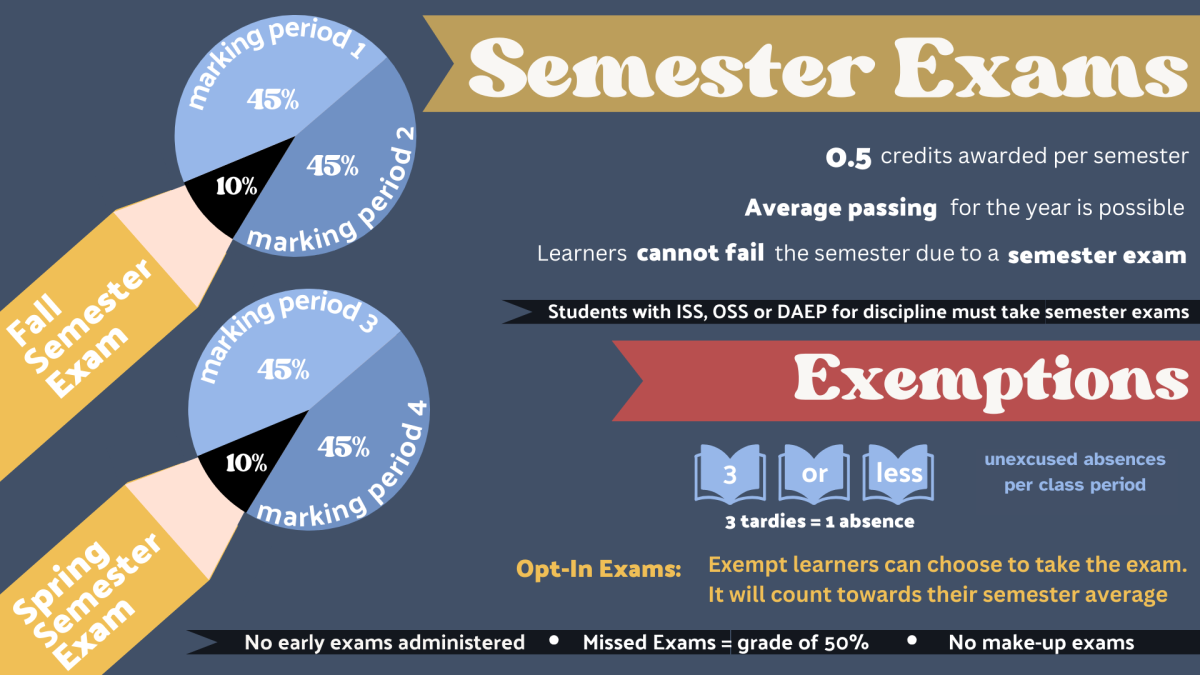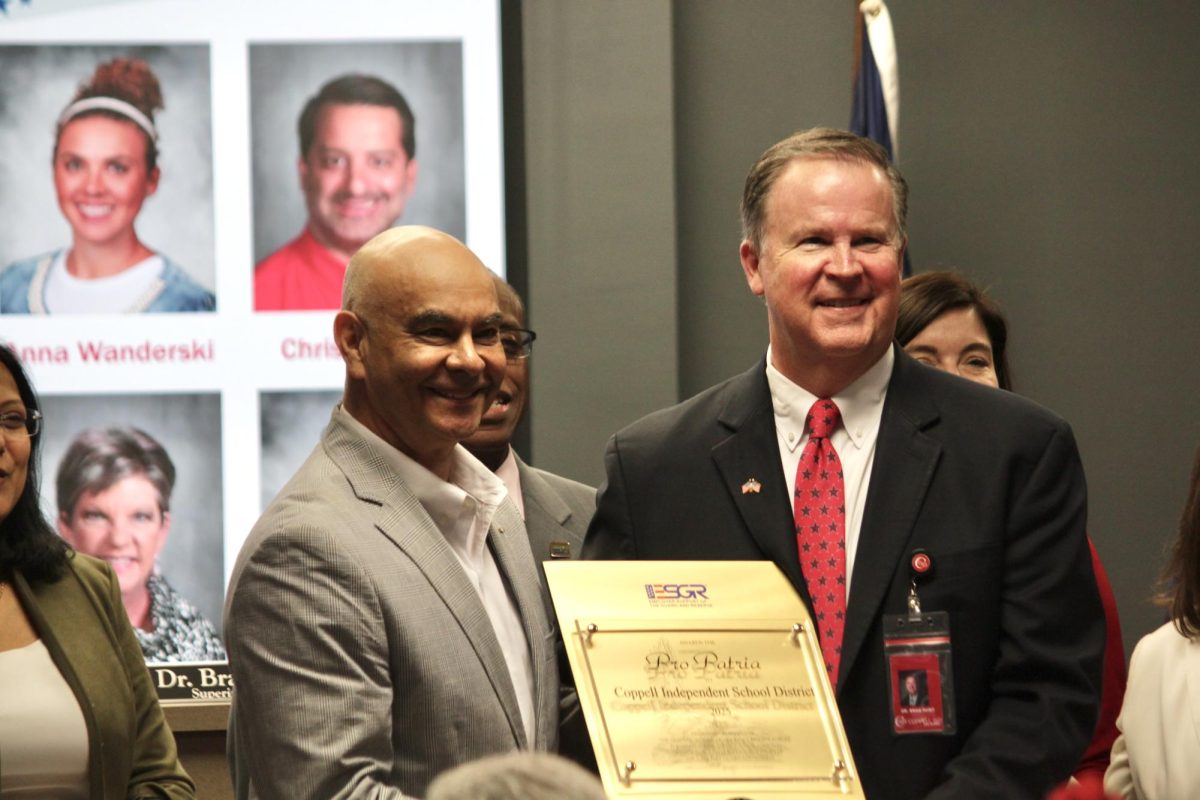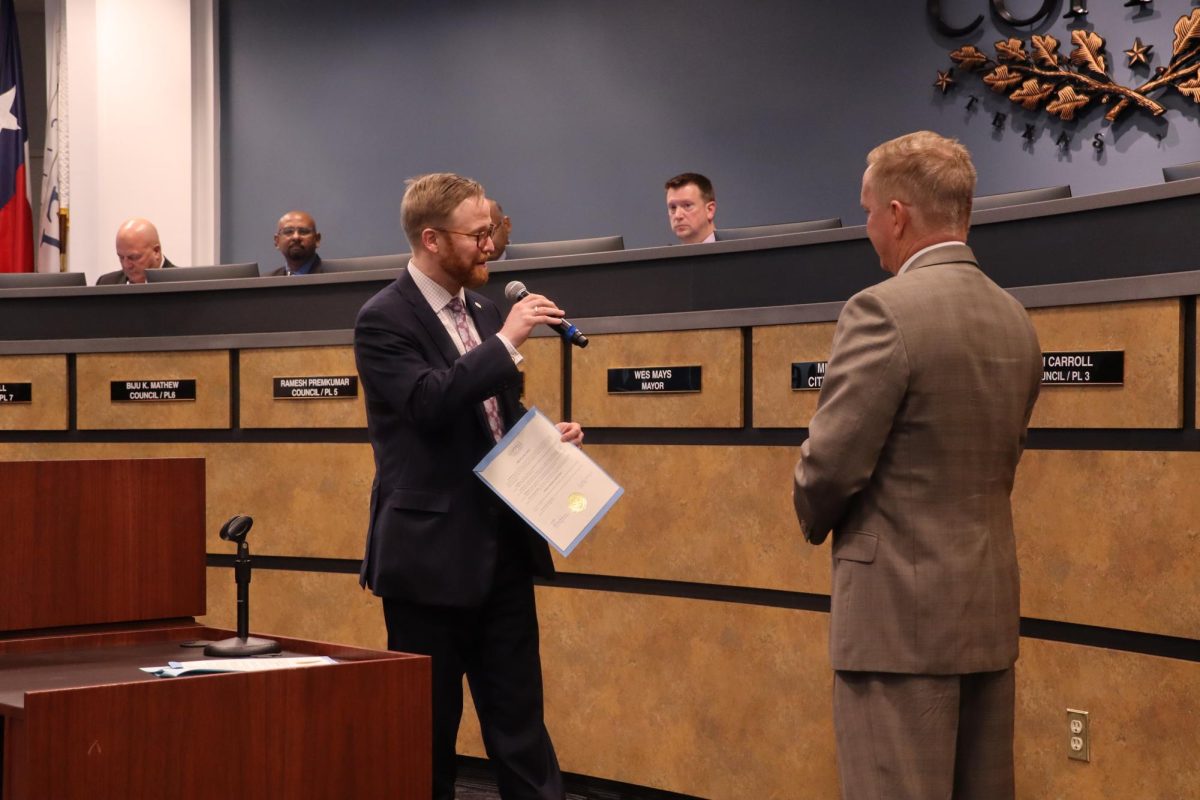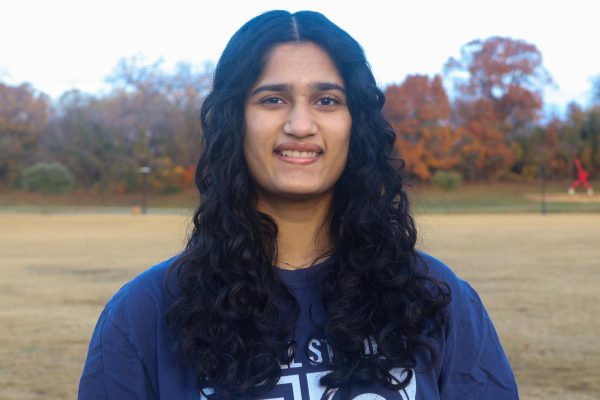Editor’s note: This story has been updated from its original version.
Immersed in lines of text, pages of notes and methods of memorization: for Coppell High School, New Tech High @ Coppell and CHS9 students, this is a grind they are familiar with through AP, IB and unit exams, but not yet through semester exams.
Starting the 2024-25 school year, all Coppell ISD high school campuses are reintroducing semester exams in an effort to increase student engagement and learning. The exams will make up 10 percent of students’ semester grades, cover only essential curriculum topics and are unable to make a student fail the class if taken.
Students can choose to exempt themselves from semester exams if they have fewer than three unexcused absences per class and no serious disciplinary issues. According to CHS lead counselor Ann Cinelli, the initiative aims to reduce early vacations prior to school breaks which decreases state funding determined by attendance.
“We want students in class participating, engaged, learning and growing,” associate principal Taylor Smith-Bothun said. “We think that semester exams are going to be one outlet to encourage students to be in class. We have already seen an improvement with that.”
Beyond boosting attendance, semester exams are intended to better prepare students for the rigorous testing environment they may face later in high school or in college.
“You are not getting away from exams when you leave CHS,” Cinelli said. “We’re not doing justice in preparing you for leaving CHS if we don’t give you testing.”
The exams also give students an opportunity to demonstrate their cumulative knowledge, gathering feedback for teachers on instruction and planning for the next semester.
“Every student should have to finish the semester by proving they know at least the last nine weeks,” Principal Laura Springer said. “We should do semester exams to say ‘We’re doing great with what we have taught,’ or say ‘We might need to start the second semester by slowing down.’”
CHS staff hope the exams will keep students more engaged throughout the year.
“A lot of times, we are at the end of the semester and people feel like they don’t have to come to school anymore because they turned in all their work,” Cinelli said. “Sometimes having even a fun assessment that shows knowledge builds culture and community in the classes, and also everybody feels like they’re working towards a common goal.”
However, multiple exams may create stress, especially for students who must take absences for excused circumstances such as sickness or family emergencies.
“I already have three absences due to a family emergency so I have to take the exam, which is annoying,” sophomore Iniya Nandakumar said. “I do think it could make the environment stressful for students but I plan on handling it like my other assignments, by cutting down distractions and getting ahead of my schoolwork.”
Resources for mental health are available to students including their teachers and counselors. Study resources will also be given to ease the preparation process.
“You have to know what’s going to be on the exam and make sure that you are using the teachers’ reviews,” CHS assistant principal Colleen Lowry said. “Create a study schedule, get good rest and then just do your best.”
Teachers are encouraged to create assessments tailored to their curriculum, especially for Career and Technical Education and co-curricular classes that do not traditionally administer exams.
“We believe that our teachers are the experts in their craft and want them to have the freedom within their content to make a semester exam that’s appropriate to how they’ve taught their class all year,” Smith-Bothun said.
The exams are scheduled on Dec. 16-19 in the fall semester and May 19-22 in the spring semester, with two exams per day. Exempted students must still attend school where they can participate in fun activities in the commons.
The district plans on continuing to track attendance and examine cumulative run reports to see the policy’s effectiveness.
“Anytime we have any kind of new implementation, we are always in a state of monitoring and adjusting and evaluating the efficacy of it,” Smith-Bothun said. “Ultimately we want to do what’s best for kids and we want to create a culture and environment that is going to support students in their hopes and dreams.”
Follow @nehann__111 and @CHSCampusNews on X.












Misty Miller • Oct 16, 2024 at 2:08 pm
This is a great article. I like how both the staff’s intent and goals, S well as the impact on students is exemplified in this piece. Great work!